written by Frank Dutkiewicz
The Key To El-Carim’s Heart by Henry Szabranski (debut 12/2/14 and reviewed by Dustin Adams) is a dark tale about a king who falls in love, only to be spurned. He locks his heart away behind an encrypted firewall. Free to act without regret, the world falls before him.
I appreciated the emotion of this story, despite it being about a lack thereof in Carim. However, I found the clash of medieval imagery with computer technology difficult to reconcile.
Read this is you’re looking for a no-holds-barred, bleak but well executed story.
Lucky Cherry Luck by Kailyn McCaord (debut 12/3 and reviewed by Dustin Adams) is the epitome of speculative fiction. The premise: a girl, with a mysterious yet subtle power to grant good luck by infusing it into sugary cherries, works at a canning factory where she can surreptitiously put them in cans to be sent to the rest of the world.
Much of the story’s (delightful) tension comes from the big brother-like conditions within the factory, and Jolene’s ability to get these lucky cherries inside a can. I was slightly confused by the author’s meaning within the final paragraph, what she imagines the future will bring. However the theme of the story seemed clear to me. If I’m correct, it’s that for every action there is an equal and opposite reaction.
A couple says their goodbyes in Patchwork Blouse by James E Guin (debut 12/4 and reviewed by Frank D). The protagonist is a woman who is spending her last day with the love of her life. Her man is one of the first settlers to Mars. A shopping trip is how they spend the last of their time together.
“Patchwork” is a tale of separation. The story is unraveled much like a war story , woman saying goodbye to her soldier as he leaves for war. A familiar premise.
A hero is a kiss away from breaking a curse. Asleep by Jeremy Minton (debut 12/5 and reviewed by Frank D) is a tale of a would-be rescuer. Ralph has accompanied his friend, Tom, to Sleeping Beauty’s palace. Tom fell yards from the prize, done in by a last ring of poison thorns. It is up to Ralph to finish the deed, but death and decay fill this place, which ruins the mood for him.
“Asleep” is a tale of destiny. The destiny of this tale, however, is not meant for the protagonist. Ralph had gone along for the journey, but weighs whether the prize at the end of the destination is worth the price paid.
A warrior withdraws from society. Sabi, Wabi, Aware, Yugen by Sam J Miller (debut 12/6 and reviewed by Frank D) is the tale of a revolutionary who cannot live with the horrors he has done. Malcom was one of the downtrodden, a poor citizen fighting against the might of the growing power of multi-national corporations. His desire to escape his past led him into a Buddhist monastery but his water-bending nanomites are still a part of him. A warrior like himself can’t hide forever.
“Sabi” is a tale of reflection and forgiveness. Malcom wishes to forget the evil he has done. His teacher’s goal is to guide him on a path that will not undo his evil, but embrace an existence where his past will be irrelevant, thus erasing the guilt that has consumed him. Running away has not solved anything for Malcom. The truth is what has eluded him and it may still catch up to him yet.
“Sabi” is set in the backdrop of a horrible war. The story has a twist that was unexpected to the protagonist and reader alike. The horror and expectations for what he had done don’t quite pan out for Malcom. For a man who sought enlightenment, running away from his past may be the thing that stands in his way all along. The tale serves as an object lesson for those who chose to hide rather than face their own sins. War does indeed bring out the worse in all of us, but hiding from the truth is never the way to deal with your own crime.
A good story.
The first time traveler is the last to appear in Time to go Home by Stephen R. Persing (debut 12/9 and reviewed by Frank D). Ward has traveled into the far future. Millions of years has changed humanity beyond recognition. Twenty time-traveling expeditions have all ended at this point of history. The inhabitants of this future have all decided to be caretakers of these people from the past, imprisoning them in a virtual reality. Ward wants no part of it, wishing only to return home.
“Time” is a tale of false perception. The people of the future have made their world where the virtual is the reality. Ward is told that he can’t go back, the limitations of time travel have deemed it impossible but he wishes to try anyway, asking if he can pursue further along the time in hopes of a future breakthrough that will allow him to go home.
“Time” is a story of competing premises. The tale is half The Time Machine and half Matrix. This story of uncertain perspectives leaves the reader with an uncertain finale. I would have liked a more defined outcome, but I think uncertainty was the point of the piece.
A teenage boy resents the winged reptile companions of his tribe. The Clasp by Jarod K. Anderson (debut 12/10 and reviewed by Frank D) is the tale of a boy eager to break away from his tribe. The reptiles, who he refers to as The Swoons, are a symbol of freedom that alludes him. He has come to hate them. He is determined to climb down the butte and brave an unfamiliar world to escape them and his tribe.
“The Clasp” is a tale that serves as a suitable metaphor for the growing pains many young men experience as they ascend into adulthood. The protagonist is filled with nothing but irrational hatred for the Swoons, but the reptiles appear to be indifferent to his people and him. He later learns that just because they choose to not interfere doesn’t mean that they are as indifferent as they appear.
“The Clasp” is a short tale that is long on meaning. The point of the tale was not lost on me. It could have been done in a much longer format but Mr Anderson’s telling in this small frame of a narrative did it justice. Well done.
An alien species learns about humanity while playing board games with a child. Games by James Valvis (debut 12/11 and reviewed by Frank D) is the tale of a small boy who has found his own ET. He teaches his friend (and the collective the alien is a part of) the competitive nature of board games and the ruthlessness that is required to win.
“Games” leaves the reader with an ominous ending. I would hope the aliens would be aware of the entertaining aspect of games, but the author leads me to believe they don’t.
Followers by S.R. Algernon (debut 12/12 and reviewed by James Hanzelka)
The game was winding down and Athena was in control. I reveled at my good fortune to have acquired follower rights to her earlier in the year. The midseason injury had diminished her value somewhat, but now in last game of the year, Athena was back to herself leading the team. Seconds were ticking off the clock, slowly the game was moving toward the end. Athena was saving the last shot for herself, fully confident in her ability to win the game. BID FOR MOTOR CONTROL ENTERED – $250,000 bid by Joe Six pack. That was a lot of cash; Joe must have one heck of a day job. BID ACCEPTED. The game paused. “We have an amateur on the court,” the announcer let the crowd know. The intake of air was palpable. The time wound down, the shot was up, and in. But Joe’s shot wasn’t the best of that fateful night.
This is a well told tale in a few lines. The author does a good job of providing both a sense of place and players. Most of all the ending conveys the emotion of what lies beyond the sports venue. Though set in another time and place, it allows us to relate to the present. Well done.
Why Woman Turned To Stone by Heather Morris (debut 12/13 and reviewed by James Hanzelka)
Tom tried to concentrate on Miss Collingsworth’s flower arranging, but he was distracted by the stone statue under the arbor. “You were bespelled by that ugly statue, weren’t you Mr. Haversham.” She asked. “It is strangely captivating.” He replied. She laughed and related tales of her and her brother “playing” with the stone woman. “You talk like she’s alive,” he said when she wound down. “Of course she’s alive,” Miss Collingsworth replied. “That’s my aunt Hephestia.”
This is a nice little bit of fantasy that explores the subjects of love, loneliness and companionship. The author has done a good job of weaving the story in such a way that it pulls the reader into both the world and the mind of Tom Haversham. The ending is done in such a way as to let us know just how much of his world is beneath the surface of our understanding. This one is well worth the read.
A prisoner forms a plan of escape in We Are All But Embers by Gemma Noon (debut 12/16 and reviewed by Frank D). The protagonist is part of a forced labor camp controlled by a drug pumped into his system. His tube fails, allowing his own thoughts to return. He discovers that the guards are lax and tools for their escape are everywhere. All he needs are numbers, and patience.
“We Are” is a straightforward tale of mind control in a forced labor camp. We see the origins of a breakout. The story has shades of several different classic tales written before.
A Tower of Babel crisis has an odd effect on a crumbling relationship in Silence by Lydia Waldman (debut 12/17 and reviewed by Frank D). Language, and the ability to understand each other, is disintegrating. Newscasts are become incomprehensible. Soon, even the written language will become gibberish. Society is bracing for an uncertain future. For a couple that has been drifting apart, the shared anxiety is an opportunity to draw closer together.
“Silence” is a story of need overcoming familiarity. The protagonist and her husband have all but abandoned communicating with each other long before the crisis developed. Their deteriorating relationship has them uniquely prepared for this tragedy.
I liked the novelty of this piece but I confess, it didn’t speak to me as it should have.
A cloning specialist replaces his daughter’s pet in Goldfish by Elizabeth Archer (debut 12/18 and reviewed by Frank D). Nala doesn’t think their daughter, Malala, will buy the copy of Gibba her father, Adan, created for her. Nala’s motherly instinct knows that Malala will be able to tell the difference. She doesn’t believe the seven-year old is ready to handle the notion of death and worries the little girl will have a relapse when the news hits her. It had been 3 years since her accident, and death may be too much for a girl who came so close to experiencing it for herself.
“Goldfish” is a tale of acceptance. There is an underlying issue that the accident affected Nala more than it did her daughter. Adan tells Malala that death is a part of life, and that their daughter may benefit from the experience.
This tale takes a twist that I found delightful. It is a story that fits very well in the short, sharp, themes that DSF loves to bring to our email inbox’s. Not my favorite tale, but worthy of my recommendation.
Recommended.
Two lovers meet under a total eclipse in Totality by Tony Pisculli (debut 12/19 and reviewed by Frank D). While the protagonist catches a solar eclipse in Munich, he spies two lovers who find each other under the shadow of the moon. Their encounter is brief, lasting only the few minutes of the eclipses life, before the woman disappears before the sun’s light.
“Totality” is a tale of commitment. The woman exists only in the shadow of the eclipse. The protagonist becomes obsessed by the pair and seeks them out, chasing each eclipse.
I found the tale too brief to be sweet, and too short in material to be compelling.
A conscripted man and his dog make a formidable team. In Tommy and the Beast by Bud Sparhawk (debut 12/20 and reviewed by Frank D) the protagonist is a sheepherder throw into the meat grinder of an interstellar war. The only one to survive his first battle, he is given a dog as a partner and names him Tommy. The pair can communicate better than any human couple, each complimenting the others strength while watching the other’s back. Tommy and his master are deadly to the enemy. Then the day comes when the pair are confronted by an alien team every bit as formidable as they are, and a third antagonist that will bring enemies together in a final stand.
“Tommy” is a boy and his dog story with a bit of Buck Rodgers mixed in. Tommy and his master learned to rely on the other’s cues. With his loyal companions help, the protagonist is transformed from a quiet sheepherder into a professional soldier. The tale’s climax gives way to a twist at its end, giving this companion tale an extra dimension.
“Tommy and the Beast” has a familiar, yet old, feel to it. Like many sci-fi tales written in the height of the Cold War, the story is an ‘us vs them’ military theme. Mr. Sparhawk spent a good deal of effort showing his protagonist in the thick of battle , a not bad effort at that. However, I found the stories opening needlessly long and thought the ending dragged on longer than it needed to be. That being said, the Space Westerns that were once so prevalent in sci-fi are becoming a rare finds these days.
A soldier is confronted by a desperate girl. The Decent Thing by Dex Fernandez (debut 12/23 and reviewed by Frank D) tells the tale of a battle harden soldier coping in a war ravaged land. He just shot a revolver-holding woman who killed his buddy, leaving the cold-eyed little girl standing next to her, all alone. The little girl’s next words shock him more than the sight of the two dead people lying before him.
“The Decent Thing” is a tale of devastation. This short story brings the effect of war on the civilians. Survival has left the small child in an automated state. Her eyes and words show how soulless she has become. The appalling opening and following storyline is a set up for a shocking finale. If you were looking to capture the real horrors of war in a flash length tale, this story is the one for you.
A young girl values her security. In a Highest Possible Setting by Em Dupre (debut 12/24 and reviewed by Frank D) the protagonist is a single woman who works on the dangerous streets of an unidentified city. She has the latest in protection software uploaded in her brain. Sentinel will help her, calculating the safest routes, cataloguing suspicious faces, and preparing her for the worst. Sentinel will guarantee that she will be safe, and who needs a social life when you can have complete security.
“Highest Possible” is a tale of paranoia. The software implanted in the protagonists skull, is designed for one purpose , lessen the customer’s chances of become a victim of violence. I found this tale to be visionary. The likelihood of such a product becoming available to the public is all but guaranteed, in my view, and the author accurately predicts the downfalls of its usage.
A perceptive work of science fiction.
Recommended
Miracles can happen even for the undead. The Christmas Zombie by Marissa James (debut 12/25 and reviewed by Frank D) is the story of an adolescent turned zombie named Grrg. His undead parents have done their best to care for their family. The alive neighbors have struck a truce with them, even feeding them dog food to keep them satisfied. Fresh kills have become rare and Grrg hadn’t a real meal since the Christmas Zombie brought them live meat last year. Times are getting tough but Grrg believes in the Christmas Zombie, and hopes he’ll deliver another fresh meal to them this year.
This silly story is a demented tale of hope. Aptly debuted on Christmas, Grrg has faith in the mythical creature. Is he real? Or is the urge to believe too important to abandon?
A funny message piece.
The evolution of a role model is examined in Child Soldier by J.W. Alden (debut 12/26 and reviewed by Frank D). A shunned soldier stops in at a restaurant. The once patriotic war he fights is now something the public sooner forget. Most avert their eyes from the protagonist but a young child looks up to him with admiration. The child can’t wait to grow up so he can go to the stars and kill bad guys too. The protagonist knows humanity doesn’t need future warriors. He’s fighting for something more profound.
“Child Soldier” is a tale of hope. The author draws upon the experiences of his family and how society has looked upon the soldier in past wars. The protagonist is looked down on by the citizens. He is a reminder of a past and present that most would like to forget. The young child, who immediately sees him as a hero, represents a future the protagonist is fighting for.
“Child Soldier” is satisfactorily profound for the message the author was attempting to convey. The soldier hasn’t forgotten what is important and why he chose to join the military. The young boy who salutes him just wants to help. The protagonist steers him in a direction where he can. Nice job.
A tale of a mixed marriage is the theme of The Dragon and the Bond by Mari Ness (debut 12/27 and reviewed by Frank D). The protagonist is a local villager who has been wedded to a dragon. The dragon needs her heart, but he can wait. The two need time to grow into each other. For a pair so unlike, they discover they have more to share than anyone could have imagined.
“The Dragon” is a story about relationships. The dragon will take her heart one day, and nothing will change that. She is left to live her life until the time they are ready. It will take time, but while they wait, the protagonist discovers that such a hard and sharp creature has a soft side indeed.
There is a lesson in this odd tale. Despite their differences, the two gradually start to understand each other. There is a fondness between them that is the sweet to a sour eventuality. The tale reminds me of marriages that are arranged; strangers that learned to first respect then love each other. Although I didn’t see the need for them to be married, I didn’t miss the metaphor of the protagonist giving her heart to her husband.
A necessary but thankless job is told in this confession of a 21st Century Dragonslayer’s Lament by Susan E. Connolly (debut 12/30 and reviewed by Frank D). The protagonist is a veterinarian. Dragons, thanks to enhanced genetic manipulation, are now a reality. Many have become abandoned, abused, and neglected. It is the protagonist’s job to fix this growing problem.
“Dragonslayer” is an anti-hero tale. As we do with stray and abused pets, the slayer of this story is preforming a distasteful task. The slayer’s job is the opposite of the romantic tales of knights defending the countryside against monsters. Instead, the monsters are the irresponsible people who disregard their commitment to care for them.
The tale serves as a commentary on how we treat our loyal companions in our society.
Fairy tale endings aren’t always what they’re cracked up to be. And Silver Foundations, Mud by Lisa Nohealani Morton (debut 12/31 and reviewed by Frank D) is a tale set inside the premise of Sleeping Beauty. The princess awakes but her hero is nowhere to be found. The kingdom rejoices and the king is ready to wed his daughter off to a worthy prince. The beauty is less than enthused. She has come to miss her walls of thorns and brambles. The good and justice philosophy of her people has lost its luster. It may be time for a change.
The Sleeping Beauty fairy tale is perhaps the most popular of the Daily SF staff. A lot of tales on the subject have been reviewed here. This one didn’t strike me as a particularly original one, but it is one of its darker variety. A different ending.
Three Degrees of Separation
In my closing comments for my June 2013 review that debut on September 16th of last year, I noted Dr Stephen Gordon’s announcement that he would no longer review Daily SF on his daily blog Songs of Eretz. Dr Gordon was the only other committed reviewer who tackled the task of reading, reviewing, and sharing his views on the daily speculative fiction email publication. For a full year he commented on each story that was published but said he would no longer do so. We shared our disappointment with you on his decision, shared his opinions on the stories the Diabolical Plots staff had published in DSF, and made a public offer to the good doctor that he could continue to review DSF on a limited basis for us here at DP. I learned two things after my proposal to Dr Gordon†�
1) The good doctor doesn’t read Diabolical Plots.
2) But a lot more of you than I ever suspected, do
On October 13th, Dr Gordon made this little announcement on passing an impressive milestone for his ezine†�
I am pleased to announce that Songs of Eretz recently passed 50,000 views. Even more significant is the geometric explosion of views–11,000 of the 50,000 occurred in the month of September 2013 alone! One day in September, there were over 1,000 views in a single day!
Stephen never said which day marked the big explosion of viewers, but if I were to guess, I would say it was the day the editors of Daily Science Fiction posted a link to our review (which is usually around a week after we post it).
So let me first say to all of you, thank you for reading our reviews. It really means a lot to us. Dr Gordon never mentioned the anomaly again. I would like to ask you two favors, if I may. Give Dr Gordon’s splendid ezine another visit and when he comments on the mysterious spike of viewers , and of the odd attraction to a 6 month old post , don’t clue him on why.
The Submission Grinder is very pleased to announce that the Letter Q has renewed its sponsorship of the writer’s submission guide. Despite the Letter X’s offer to triple Q’s contributions, the staff at the Grinder elected to stick with 17th letter of the alphabet. As SG management stated in a company memo†�
Grinder is very pleased to announce that the Letter Q has renewed its sponsorship of the writer’s submission guide. Despite the Letter X’s offer to triple Q’s contributions, the staff at the Grinder elected to stick with 17th letter of the alphabet. As SG management stated in a company memo†�
†�Q has been with us right from the start, and although we appreciate X’s outstanding offer, being tied to such a salacious and scandalous consonant does not represent the image we envision for the Submission Grinder
So we at Diabolical Plots welcome a return to our partnership with Q as the sole sponsors for the fastest growing writer’s guide website in the industry. It is an honor to be associated with a letter that has supported Her Majesty’s top weapons specialist at the highly classified M spy network for years, as well as lending itself to a superior futuristic multi-dimensional being whose sole purpose is to irritate Star Fleet captains.
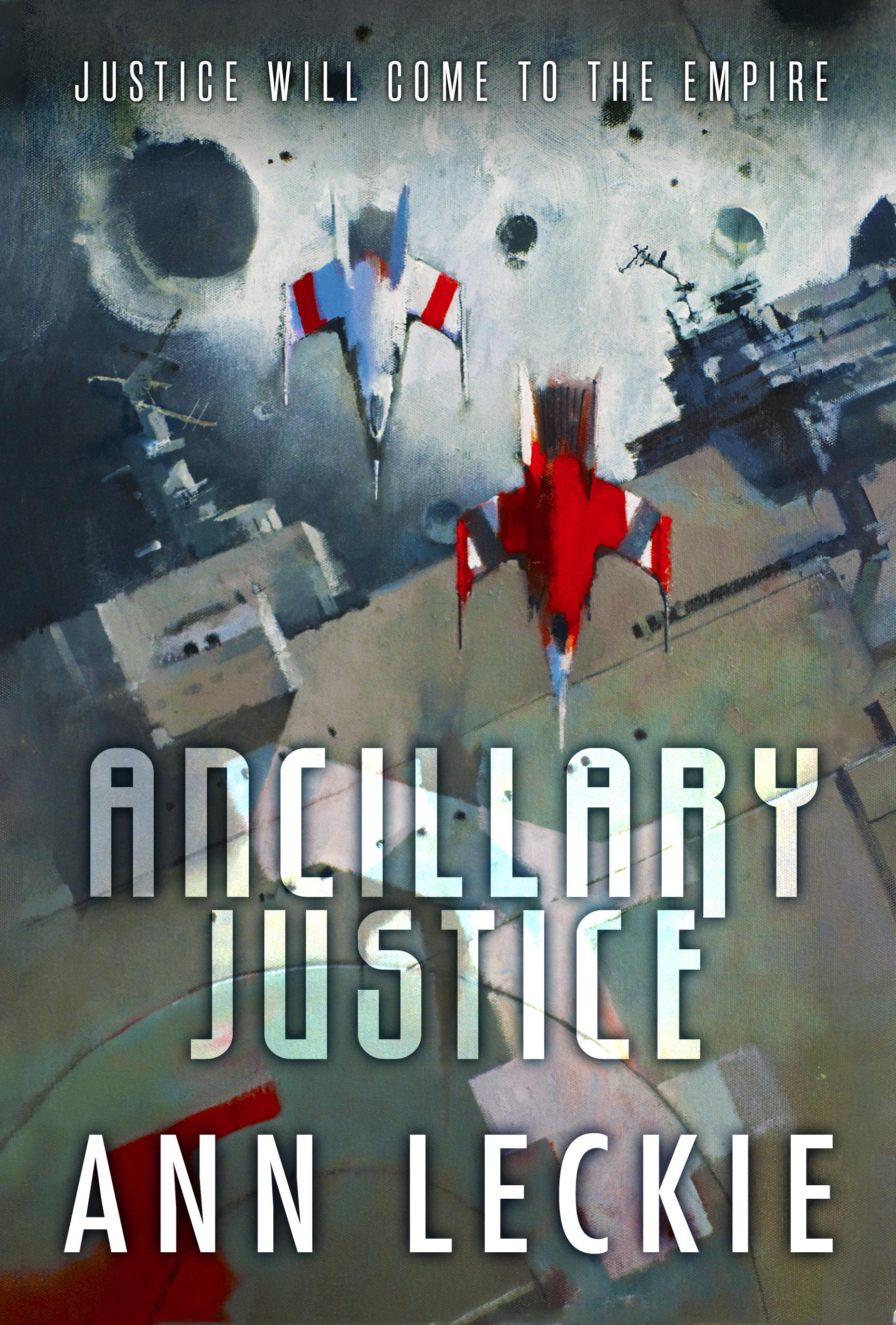 “Breq is both more than she seems and less than she was. ” This line is from the back-cover blurb of Ancillary Justice, the debut novel by Ann Leckie published by Orbit Books. Breq is a fragment of the ship AI known collectively as Justice of Toren, whose mind once occupied many bodies simultaneously: the body of the ship itself and thousands of ancillaries. Ancillaries are “corpse soldiers”, human bodies whose minds have been overwritten to function as appendages of a ship AI. At the point where the story begins, there is only Breq. All the rest of her is gone. She has chosen a mission, a dangerous mission against astronomical odds.
“Breq is both more than she seems and less than she was. ” This line is from the back-cover blurb of Ancillary Justice, the debut novel by Ann Leckie published by Orbit Books. Breq is a fragment of the ship AI known collectively as Justice of Toren, whose mind once occupied many bodies simultaneously: the body of the ship itself and thousands of ancillaries. Ancillaries are “corpse soldiers”, human bodies whose minds have been overwritten to function as appendages of a ship AI. At the point where the story begins, there is only Breq. All the rest of her is gone. She has chosen a mission, a dangerous mission against astronomical odds.


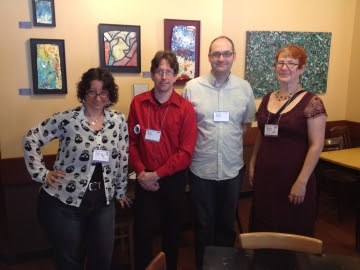

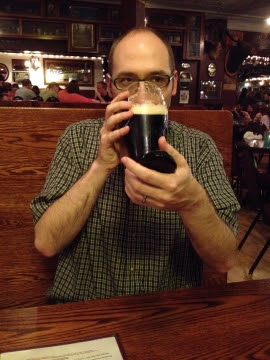





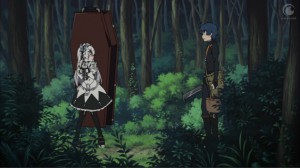
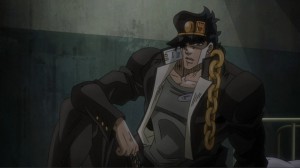 Why I Watched It: When I was very new to anime, the original JoJo’s Bizarre Adventure OAV series was one of the few that really stuck in my mind due to the crazy combination of the extremely manly art style, the level of violence, and the Stands, which I can’t really describe as anything other than mystic inner selves named after tarot cards. They’re a lot like the Personas in the Persona series, but predate them by several years.
Why I Watched It: When I was very new to anime, the original JoJo’s Bizarre Adventure OAV series was one of the few that really stuck in my mind due to the crazy combination of the extremely manly art style, the level of violence, and the Stands, which I can’t really describe as anything other than mystic inner selves named after tarot cards. They’re a lot like the Personas in the Persona series, but predate them by several years.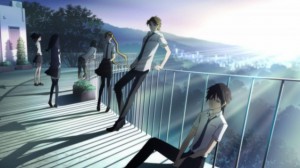
 Why I Watched It: I liked the premise. It sounded very sweet. Kaori Fujimiya is a high school girl who loses memories of people who she wants to spend time with, who are important to her (barring family members), with the start of every Monday. This makes it impossible for her to make friends, but one boy, Yuuki Hase, picks up on her loneliness and resolves to become her friend every week.
Why I Watched It: I liked the premise. It sounded very sweet. Kaori Fujimiya is a high school girl who loses memories of people who she wants to spend time with, who are important to her (barring family members), with the start of every Monday. This makes it impossible for her to make friends, but one boy, Yuuki Hase, picks up on her loneliness and resolves to become her friend every week. Why I Watched It: Shoujo (girls) comics are infrequently adapted into anime, and even though the character designs don’t quite do anything for me, I wanted to give this one a shot. The premise is that the Sun King conquered most of the world, but agreed to leave the Duchy of Rain alone in exchange for one of the duke’s daughters in marriage. Princess Nike loses a game of rock-paper-scissors against her sisters and is prompted shipped off to marry a king she has never met, but the king turns out to be a boy younger than she is and she’s no shrinking violet.
Why I Watched It: Shoujo (girls) comics are infrequently adapted into anime, and even though the character designs don’t quite do anything for me, I wanted to give this one a shot. The premise is that the Sun King conquered most of the world, but agreed to leave the Duchy of Rain alone in exchange for one of the duke’s daughters in marriage. Princess Nike loses a game of rock-paper-scissors against her sisters and is prompted shipped off to marry a king she has never met, but the king turns out to be a boy younger than she is and she’s no shrinking violet.
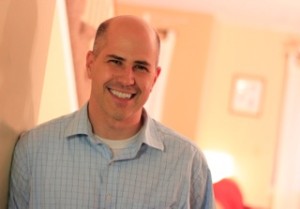
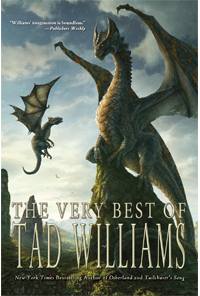
 Grinder
Grinder